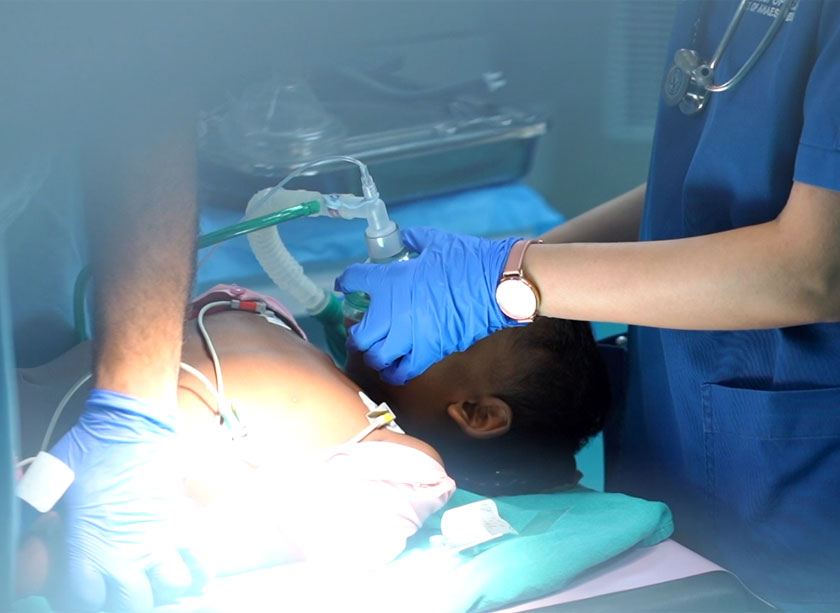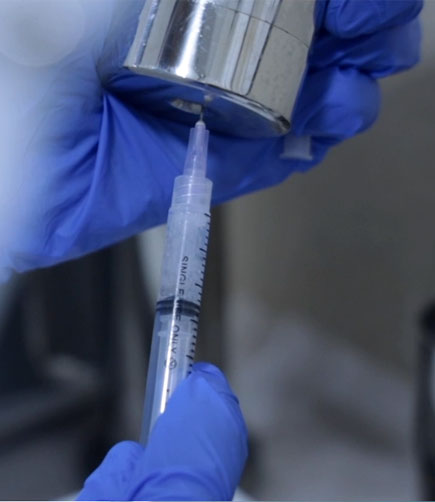Give today. Impact the care of tomorrow
An autonomous institution under Health and Family Welfare Department, Government of Kerala
Read More


Malabar Cancer Centre – Post Graduate Institute of Oncology Sciences & Research, Thalassery is an autonomous institution under Health and Family Welfare Department, Government of Kerala, established under Societies Registration Act.
Explore more
Malabar Cancer Centre – Post Graduate Institute of Oncology Sciences & Research offers a wide range of facilities designed to provide comprehensive support to patients throughout their healthcare journey.

Cancer is a disease in which some of the body’s cells grow uncontrollably and spread to other parts of the body. Cancer can start almost anywhere in the human body, which is made up of trillions of cells. Normally, human cells grow and multiply (through a process called cell division) to form new cells as the body needs them. When cells grow old or become damaged, they die, and new cells take their place. Sometimes this orderly process breaks down, and abnormal or damaged cells grow and multiply when they shouldn’t. These cells may form tumours, which are lumps of tissue. Cancerous tumours spread into, or invade, nearby tissues and can travel to distant places in the body to form new tumours. This process is called metastasis.
Age - Advancing age is the most important risk factor for cancer overall and for many individual cancer types. The incidence rates for cancer climb steadily as age increases.
Tobacco - Tobacco use is a leading cause of cancer and of death from cancer. People who use tobacco products or who are regularly around environmental tobacco smoke (also called secondhand smoke) have an increased risk of cancer because tobacco products and secondhand smoke have many chemicals that damage DNA.Tobacco use causes many types of cancer, including cancer of the lung, larynx (voice box), mouth, esophagus, throat, bladder, kidney, liver, stomach, pancreas, colon and rectum, and cervix, as well as acute myeloid leukemia. People who use smokeless tobacco (snuff or chewing tobacco) have increased risks of cancers of the mouth, esophagus, and pancreas.There is no safe level of tobacco use. People who use any type of tobacco product are strongly urged to quit. People who quit smoking, regardless of their age, have substantial gains in life expectancy compared with those who continue to smoke. Also, quitting smoking at the time of a cancer diagnosis reduces the risk of death.
Obesity - People with obesity may have an increased risk of several types of cancer, including cancers of the breast (in women who have been through menopause), colon, rectum, endometrial (lining of the uterus), oesophagus, kidney, pancreas, and gallbladder. Conversely, eating a healthy diet, being physically active and keeping a healthy weight may help reduce risk of some cancers. These healthy behaviours are also important to lessen the risk of other illnesses, such as heart disease, type II diabetes, and high blood pressure.
Alcohol - Drinking alcohol can increase your risk of cancer of the mouth, throat, oesophagus, larynx (voice box), liver, and breast. The more you drink, the higher your risk. The risk of cancer is much higher for those who drink alcohol and also use tobacco.
Infectious agents- Certain infectious agents, including viruses, bacteria, and parasites, can cause cancer or increase the risk that cancer will form. Some viruses can disrupt signalling that normally keeps cell growth and proliferation in check. Also, some infections weaken the immune system, making the body less able to fight off other cancer-causing infections. And some viruses, bacteria, and parasites also cause chronic inflammation, which may lead to cancer. Examples are given below.
Epstein-Barr Virus (EBV) - Hepatitis B Virus and Hepatitis C Virus (HBV and HCV)
Human Immunodeficiency Virus (HIV) - Human Papillomaviruses (HPVs)
Human T-Cell Leukemia/Lymphoma Virus Type 1 (HTLV-1) - Helicobacter pylori (H. pylori)
Common symptoms of cancer are:
1. Lump or swelling
2. A sore that doesn’t heal
3. Recent change in a wart/mole
4. Unusual bleeding or discharge
5. Changes in bladder or bowel habits
6. Nagging cough or hoarseness
7. Difficulty in swallowing or dyspepsia
No. Although research has shown that cancer cells consume more sugar (glucose) than normal cells, no studies have shown that eating sugar will make your cancer worse or that, if you stop eating sugar, your cancer will shrink or disappear. However, a high-sugar diet may contribute to excess weight gain, and obesity is associated with an increased risk of developing several types of cancer.
To date, there is no convincing scientific evidence that links a person’s “attitude” to their risk of developing or dying from cancer. If you have cancer, it’s normal to feel sad, angry, or discouraged sometimes and positive or upbeat at other times. People with a positive attitude may be more likely to maintain social connections and stay active, and physical activity and emotional support may help you cope with your cancer.
No. Exposure to air will not make tumours grow faster or cause cancer to spread to other parts of the body.No. Exposure to air will not make tumours grow faster or cause cancer to spread to other parts of the body.
No, not according to the best studies completed so far. Cancer is caused by genetic mutations, and cell phones emit a type of low-frequency energy that does not damage genes.
No. Although some studies suggest that alternative or complementary therapies, including some herbs, may help patients cope with the side effects of cancer treatment, no herbal products have been shown to be effective for treating cancer. In fact, some herbal products may be harmful when taken during chemotherapy or radiation therapy because they may interfere with how these treatments work.
Not necessarily. Cancer is caused by harmful changes (mutations) in genes. Only about 5 to 10 percent of cancers are caused by harmful mutations that are inherited from a person’s parents. In families with an inherited cancer-causing mutation, multiple family members will often develop the same type of cancer. These cancers are called “familial” or “hereditary” cancers.The remaining 90 to 95 percent of cancers are caused by mutations that happen during a person’s lifetime as a natural result of aging and exposure to environmental factors, such as tobacco smoke and radiation. These cancers are called “non-hereditary” or “spontaneous” cancers
No. The best studies so far have found no evidence linking the chemicals typically found in antiperspirants and deodorants with changes in breast tissue.No. The best studies so far have found no evidence linking the chemicals typically found in antiperspirants and deodorants with changes in breast tissue.




Cancer is a class of diseases characterized by an abnormal cell growth there are over 100 different types of cancer, and each is classified on the type of cell that affects initially. Cancer harms the body when damaged cells divide uncontrollably to form lumps or masses of tissue called tumors .Except in the case of leukemia where cancer prohibits normal blood.

The Patient Welfare Committee was constituted for the smooth functioning of our Patient Welfare Activities has attributed a boost to our patient services and management. The Committee consists of Doctors of different specialties, representatives from Administrative section, Social Scientist and Nursing personnel. The Committee co-ordinates all the welfare activities of the patients who are undergoing treatment at this Centre.
